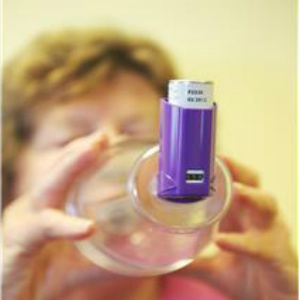Exclusive NICE should drop its recommendations for GPs to carry out a battery of tests for the diagnosis of asthma and adopt current ‘gold-standard’ guidelines, the BMA has said in a wholesale rejection of the institute’s proposals.
In its official response to the draft guidelines, it warns that the draft guideline is ‘too complex’ to carry out in primary care and that new tests – such as exhaled FeNO and bronchial challenge tests – would have be undertaken in secondary care.
The RCGP’s response – also seen by Pulse – has warned that NICE’s recommendations will lead to increased GP appointments and referrals, and increased costs for practices.
According to NICE, new guidelines on diagnosis and monitoring of asthma were needed because ‘there is evidence that incorrect diagnosis is a significant problem’.
The draft guidelines, released in January, bypass the option to carry out a trial of therapy as means to diagnose asthma – currently advised by the recently updated gold-standard SIGN/BTS guidelines on diagnosis – and will see GPs required to get extra tests to confirm a diagnosis.
But the BMA’s official response to the draft guidelines warns that it is a mistake to go against the BTS/SIGN guidance, and says NICE should adopt the recommendations from these gold-standard guidelines.
It says: ‘We are concerned that NICE is proposing to publish guidance which contradicts most of the recommendations made by the joint British Thoracic Society/SIGN guidance on the diagnosis, monitoring and management of asthma which was published in October 2014.
‘We would recommend that NICE review this document, and adopt recommendations from this guidance.’
Related stories
Are NICE guidelines becoming a ‘laughing stock’?
NICE: GPs should use FeNO and ‘twitchiness’ tests to confirm asthma diagnosis
It also says that the recommendations are ‘too complex to be used by GPs in routine practice’, with the recommendations of FeNO assessments coming under particular scrutiny.
The BMA says: ‘We have concerns about FeNO assessment as it is not yet validated for diagnosing asthma. We are also concerned at the resources required, as the equipment is expensive and absent in primary care, although becoming more available in secondary care.’
The RCGP says that the guideline committee should be ‘congratulated on the production of this impressive document’, but it has little positive to say about the guidelines in full, adding it remains ‘very concerned’, especially at the importance of FeNO as a diagnostic test in primary care.
It stresses that the new NICE guidelines represent a ‘big change in practice for a common condition’ and will meet resistance from GPs.
It says: ‘Most of us will not have heard of FeNO nor be familiar with bronchial challenge testing. Implementing this complex diagnostic pathway will increase the number of appointments needed and present slight logistical challenges within surgeries such as using the new machines, which staff know how to do the tests.
‘Therefore, it is likely to meet with much resistance, GPs will want to know why it’s such a good idea.’
In February respiratory experts attacked reports put out by NICE that more than a million people could be receiving treatment for asthma unnecessarily. The experts stressed that the message could lead to complacency about under-treatment of the condition.
Please note: This article was updated on 20/07/15 to make clear that the BMA did not object to the use of spirometry or reversibility testing in asthma, as recommended by BTS-SIGN and the NICE draft guideline.

















